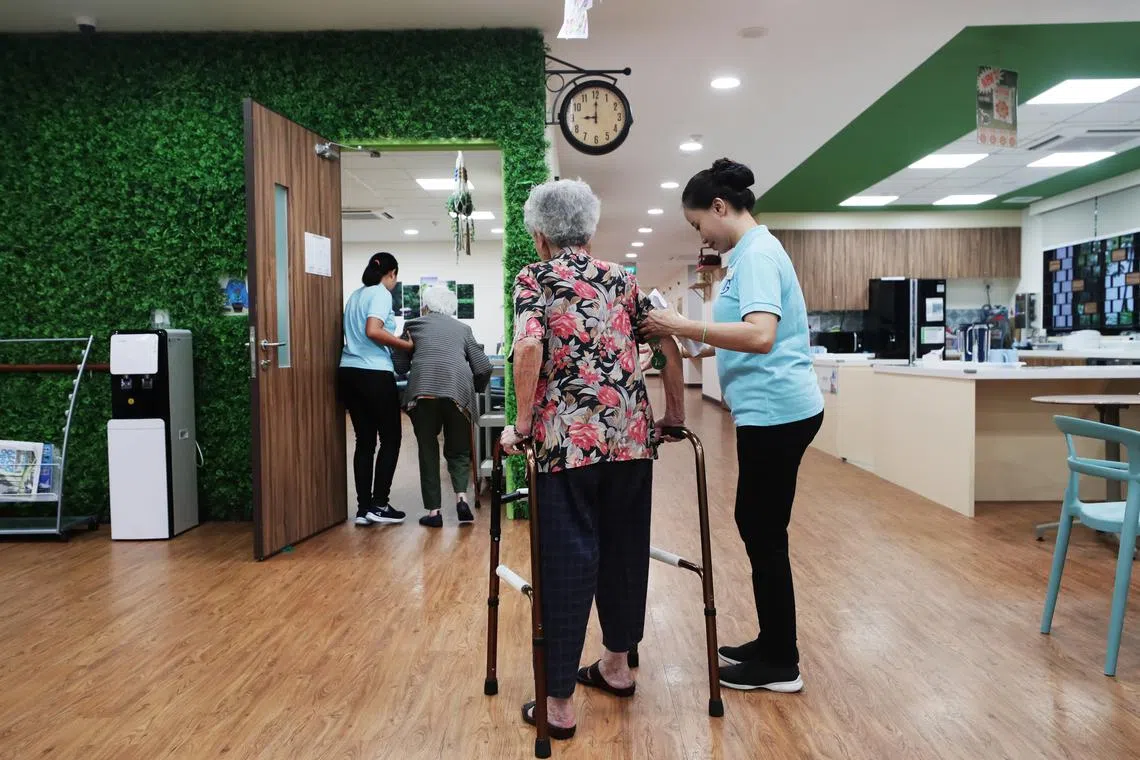For subscribers
Beyond ‘difficult and dirty’ – what community eldercare workers know that we don’t
Singapore will need more workers to care for its elderly. It is not an easy job but it can be truly meaningful and fulfilling.
Sign up now: Get ST's newsletters delivered to your inbox

Human connection is key to eldercare work, and many of the elderly are quite willing to reach out and connect.
ST PHOTO: KELVIN CHNG
We’ve all heard the statistic – that one in four Singaporeans will be aged 65 and above by 2030.
Community-based elder daycare centres host older adults for a duration of six to nine hours a day, under the supervision of trained direct care workers. These are non-healthcare certified caregivers who tend to the daily basic needs of the elderly – such as interaction, personal care, exercise and meals. Unlike residents of nursing homes, the senior clients at these centres do not have acute care needs, though some may exhibit varying degrees of mobility and dementia conditions.


